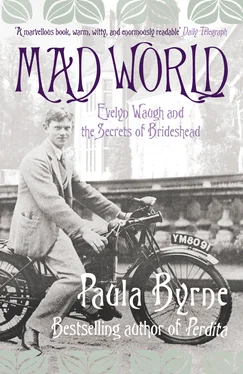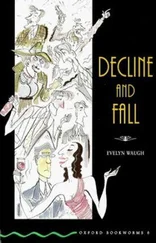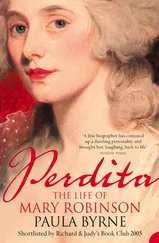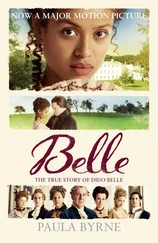Most undergraduates wore three-piece broadcloth suits. Brian and Harold were noted for sartorial elegance that set them apart from the crowd. Their clothes were beautifully made, described by one fellow Old Etonian as ‘an intoxication’. They wore suits by Lesley & Roberts, cut in early Victorian style with high shoulders and big lapels. Their white double-breasted waistcoats were from Hawes & Curtis of Jermyn Street. They had monogrammed silk shirts, silver, mauve and pink trousers. Their casual wear included cashmere turtle-necked sweaters in bright colours, suede shoes, raspberry crepe-de-Chine shirts, green velvet trousers, and yellow hunting waistcoats. Harold wore a grey bowler, a trailing black coat and his infamous ‘Oxford bags’ (twenty-six inches wide at the knee and twenty-four at the ankle, covering the shoes).
Acton’s nomenclature for their set was deliberately provocative, since Oxford was traditionally divided between Aesthetes and Hearties. Henry Yorke offers a choice description of the braying hearties: ‘a rush of them through the cloisters, that awful screaming they affected when in motion imitating the cry when the fox is viewed, the sense curiously of remorse which comes over one who thinks he is to be hunted, the regret, despair and feeling sick the coward has.’ A scrum of drunken hearties from the rowing club ducked Harold Acton in his pyjamas in the Mercury Fountain in Christ Church’s Tom Quad. This is the origin of the incident in Brideshead where members of the notorious Bullingdon Club attempt to duck Anthony Blanche. On another occasion, thirty men – the equivalent of the first and the second rugby fifteens combined – assaulted Acton’s room. He recalled the incident: ‘I, tucked up in bed and contemplating the reflection of Luna on my walls, was immersed under showers of myriad particles of split glass, my hair powdered with glass dust and my possessions vitrified.’ Brian Howard received news of the attack from his mother, who heard it (at Edith Sitwell’s recitation of her poem Façade ) from the mother of one of Harold’s assailants: ‘If I’d been there I’d have unloosed her corsets on the spot’ was his riposte.
Evelyn, feeling that something essential in Oxford was eluding him, did the minimum of academic work. He blamed his disillusion with academia on his bad relationship with his tutor, C. R. M. F. Cruttwell, who was also Dean of Hertford College. The bad feeling was mutual. Cruttwell disliked Evelyn, convinced that he was wasting his scholarship. He described his student as a ‘silly suburban sod with an inferiority complex and no palate’. Evelyn in return despised Cruttwell, describing him as ‘a wreck of the war’ who had ‘never cleaned himself of the muck of the trenches’.
In Evelyn’s third term he changed to a more spacious set of rooms on the ground floor of the front quad. This left him vulnerable to people dropping in to dump their bags or to cadge a drink and a cigarette. He decorated the rooms with Lovat Fraser prints and kept a human skull in a bowl, which he decorated with flowers. One night a group of ‘young bloods’ came into the quad drunk and looking for trouble. One of them leaned into Evelyn’s window and was violently sick.
Having failed to be invited to join any of the university’s famous drinking or dining clubs, Evelyn formed his own. He called it the ‘Hertford Underworld’. His friends would come to his rooms to drink sherry and eat bread and cheese. It all felt rather unglamorous.
His Oxford experience was transformed when he was befriended by the charming, though slightly mad, Terence Greenidge. It was Greenidge who was responsible for introducing him to a new circle of friends. Meeting him was the beginning of a sentimental education.
Greenidge’s habits included an obsession with tidiness. His pockets were often crammed with litter from the streets. In his person, by contrast, he was very untidy. He was a kleptomaniac, who filched any trifle that took his fancy: hairbrushes, keys, nail scissors, inkpots. He secreted his ill-gotten gains in orderly heaps behind books in the library. Evelyn was drawn to his zany humour and his child-like aura. Always in trouble with the college authorities, Greenidge loved practical jokes and declaimed Greek choruses loudly at night in the quad. He also invented nicknames that delighted Evelyn. Alec Waugh was ‘Baldhead who writes for the papers’, the night porter was ‘Midnight Badger’, another contemporary was ‘Philbrick the Flagellant’ (who on one occasion beat up Evelyn). Hugh Molson (Evelyn’s Lancing friend) was ‘Hotlunch’, since he often complained about the cold lunches.
Evelyn and Greenidge put about a rumour that Cruttwell was sexually attracted to dogs. They barked under his windows at night and bought a stuffed dog, which was put in the dean’s path as he walked home drunk after a college dinner. Greenidge developed a reputation as a dangerous influence. When Lord Beauchamp (‘no prude’, says Evelyn with typically mischievous understatement) found Greenidge in his elder son’s rooms, he took his boy down from the university for two terms, fearing that Elmley had got into a bad set.
Greenidge described Evelyn in his undergraduate days as having ‘the attractive appearance of a mischievous cherub’. He recalled him as a well-dressed figure, usually to be seen in a pale blue plus-four suit and carrying ‘a short stout stick which was almost like a cudgel’. He remembered that Evelyn’s ‘conversation, though emotional, always appeared reasonable, his assurance was remarkable, and his wit was remarkable’. The plus fours would become a trademark. Waistcoats were also favoured. Fellow Oxford undergraduate Peter Quennell remembered that the first time he met Evelyn, ‘he was small and neat, and dandified, wearing a bright yellow waistcoat’. There was a touch of Mr Toad about him.
Evelyn continued to be attracted to eccentric, anarchic characters. They brought out his own streak of zaniness. Greenidge later suffered from mental illness but nevertheless managed to hold down a job as a minor actor at the Shakespeare Memorial Theatre in Stratford-upon-Avon. He remembered Evelyn as slightly mad, but extremely kind and loyal. In later years, he lent Greenidge large sums of money, always sending it by return of post whenever he was asked for help. Evelyn was uninterested in money. Greenidge had ‘a feeling that he was aware unconsciously that his talent was – well – formidable. It is rather pleasant that to him who did not worry about it great wealth came.’
At a lecture given by G. K. Chesterton to a Catholic group, the Newman Society, Greenidge introduced Evelyn to Harold Acton. Evelyn and Acton became immediate and enduring friends. Acton began attending the Hertford Underworld in Evelyn’s rooms. Evelyn was convinced that the main reason for his appearance in such a humble setting was that he was infatuated with one of the Hertford men in the group. Refusing to drink beer and eat the plain fare, Acton would sip water and stare at the young Adonis. But in return he invited Evelyn to lunch and introduced him to his Eton friends, including Hugh Lygon.
Acton was now editing a new modernist literary magazine, a successor to the Eton Candle called the Oxford Broom . Waugh drew the cover for the second edition in spring 1923. Then he wrote a story for the third number, which was published in June 1923. Entitled ‘Antony, who sought things that were lost’, it concerns a beautiful young aristocrat, ‘born of a proud family’, who ‘seemed always to be seeking in the future for what had gone before’. He was perhaps the first fictional draft for the Sebastian type, created exactly at the time when Evelyn was beginning to be drawn to Hugh Lygon and his kind.
His Oxford life had truly begun.
Читать дальше












